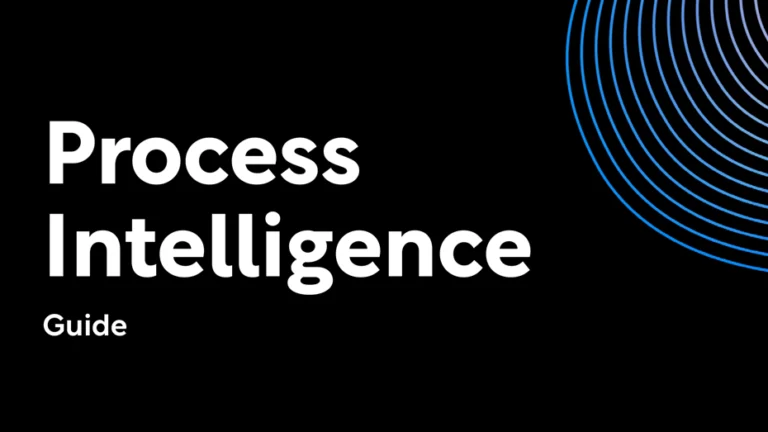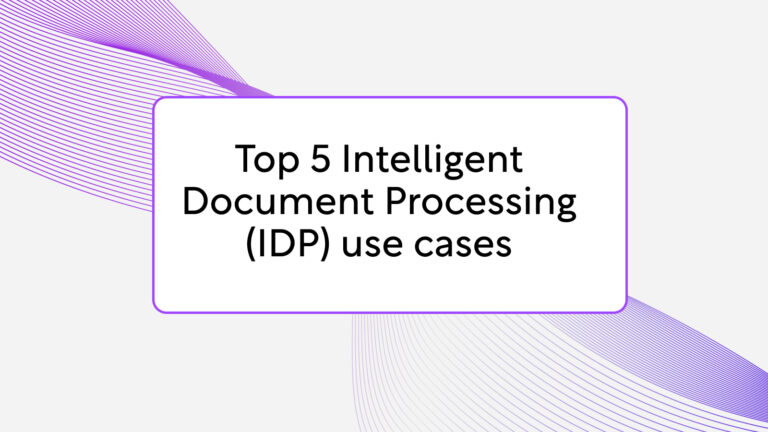Many analyses are frequent underlining the challenges and objections to digital administration without attention for the positive sides. At the same time, a paper administration is thrown aside, named a fossil from old times without any advantages over digital administration. Neither is true, actually.
Though it is worthy to notify that improving technique is slowly conquering the old methods. Many objections to this method are diminished due to better thought out solutions, improved search technique and increasing reliability overall. To give a clear overview each specific kind of administration will be assessed now.
Paper administration
When we discuss paper administration, we talk about physical storage of documents. The cynic will notion that almost all storage is, in essence, physical. However, for the purpose of this blog, the initial definition will suffice.
Trust
A first important aspect of administration in general is trust. A quote by a famous French writer, Gustave Flaubert, springs to mind: “There is no truth. There is only perception.”. This is specifically true in trust. The perception of how safe, accurate or useful a system is, is worth more than how much of these things it actually is. The methods of paper administration have a long record. For hundreds of years this technique has sufficed and was always enough.
In recent memories, no huge scandals were reported with “normal” paper administration but many with digital ones including the panama papers, paradise papers and the leaking of thousands of digital documents by Wikileaks. Together with often reported data leaks, stolen credit card numbers and email addresses, it is no wonder that there is doubt about a digital approach.
Reliability
As is trust, reliability is a subjective argument for paper administration. This does not mean that it should be regarded as invalid, but rather with appropriate skepticism. The feeling of reliability of the paper administration stems from understanding what happens to a document once it is stored. Which means in most cases, nothing will happen. A document is put in a folder, and later it will be taken out of the folder. Whereas this is clear and uncomplicated, a digital process makes this part invisible. Even if the process is exactly the same, a document is stored and some time later it is taken out of the folder, the lack of transparency decreases the reliability.
The simple process guarantees that a document will still be available once stored. And when destroyed it will be unavailable. This reliable straightforwardness is appealing and serves as a strong compensation for some of the downsides of this form of employee record keeping.
Practical and little investment
It is undeniably easier to leave it like it is. In the end, pros and cons carefully weighed out, changing an administrative system is an investment, that requires time and attention to be adopted. Keeping an already working and deeply imbedded system is simply easier.
Legal issues
One of the areas that is slow to develop in the IT area, is law. The existing laws about paper administration are clear and understandable. For digital solutions there is some interpretation possible. There are no clear guidelines on safety, and validity of digital record management. Some legal systems are clearer than others, and with the GDPR coming in effect a huge step forward has been made already in clarity. There are still many questions unanswered and finding these answers might be a costly and long process.
Insight
Much like trust and reliability, this problem is caused by lack of transparency of the process. Both complicated and easy software is not designed to have its parts studied by users. A clock can be taken apart and view every fragment, and with enough reasoning skills can one determine what every part is meant to do. It doesn’t require a particular insight or access to see what happens inside. Most software, however, is designed to be a black box, inaccessible for the user that is reliant on the outcome. Even software that is accessible to see, remains inaccessible to understand because of a lack of knowledge.
Here, paper administration is a clock. Every part of the process can be followed, and the consequence of every action can be determined. But with digital administration it is hidden, either intentionally or unintentionally. This makes it unclear what happens with what data. Unclear of the output we see of the system is actually all the output that is produced. These concerns heavily inflict on trust but also boost the need for insight, which is clearly stronger in the old-fashioned approach of Human Resource Document Management.
Detachment from responsibility
A less obvious argument, but definitely observable, is detachment from responsibility. It is a curious effect, that stems from the question: “Who is responsible?”. In the paper situation this is a relative straightforward answer: The person holding the key. When a file cabinet is centralized and guarded by one or a group of people, they can be held accountable. Accountable for what is inside a personnel file, who accesses it and what it is done with them. Decentralizing an access point and giving more people the possibility to get inside these files, might detach this dedicated group from their responsibility and as a consequence from their vigilance that is so important for good record keeping.
Destruction
We’ve discussed recently the desctruction of paper and digital documents, so we won’t go into details this time. However, as mentioned before the destruction of a document is a vital part of compliancy, and is one of the three pillars that generates value through record keeping. Finding documents that need to be destroyed is more difficult, but not impossible, in paper files. But actually destroying them, can be considered as easier. Most documents that are in a personnel file are forms that are printed out and filled in by hand, or copies of something. This means that the only version that exists, is the physical version inside the dossier. Destroying this one version, is enough to comply, which makes for an easy and understandable process.
Digital destruction poses more of a challenge, considering that even the term ‘destruction’ is already grounds for discussion. Because simply removing a document, is no longer enough to be called destroyed. Again, lack of transparency and lack of clarity obstruct this process heavily.
Digital administration
After the previous list containing many things that makes paper administration a better choice than digital administration, the motivation to change to a digital system might be somewhat diminished. An systems, people and society as a whole, make these clear advantages less valid. Honesty allows me to say that my personal preference goes to digital systems, after all I am also a product of my generation. Although the attempt has been made to provide an honest review, it is possibly colored by this preference.
Innovation
Maybe the most important advantage of digital record keeping, and at least the characteristic that make all others possible is innovation. Content software that is used for storage of these documents is subject to continuous innovation and changes. Changes in security, accessibility or location don’t require high investments in infrastructure, but incidentally a small change in the software.
A new approach to record keeping can be pushed to thousands of small offices with a push of a button, largely replacing the necessity of long training and prevent processes that happen a bit different everywhere. Companies developing these content solutions are focused on implementing newer and better versions of their product every day.
Adaptability
The beauty of properly designed and build software, is that it fits to the need of a company. It can be adapted to what a company requests, and features that are not used can be chosen not to implement. For example, for small companies a search feature can be less important than for large companies, and for a single responsible, a multi role division is not necessary, whereas for large teams restricted access might be necessary. It offers a customised process with many more features than a regular paper administration.
Security
This subject is a heavily debated one, and many will not agree with the standpoint that digital data is saver. It is true that security in this particular area has been compromised on several occasions, but at the same time paper administration faces the exact same problem. In this sense the war did not change, just the weapons.
But several aspects of security are better organized in digital administration. Especially the authorization, which can be done easier and is not dependent on a key or location, and safety of documents. There is little to no deterioration of digital files and it is easier to protect them against natural and man-made disasters.
Scalability
Another strong point of digital solutions is the scalability. Strongly connected with adaptability, scalability guarantees that if a change in the organization, either in size or in division, occurs the system can scale with it easily. One of the most obvious change in an organization, is growth. Especially long term or rapid growth, poses challenges on the infrastructure of a company, also on traditional forms of record keeping. When the number of employees grow, the amount of challenges and blatant problems grow exponentially. The proof being that companies with ten employees have the exact same problems and shortcomings as companies with a hundred.
Not only in size, but also in division a change is possible. Outsourcing departments to other countries, separating a company with different levels of (in)dependency or starting a new office. The right document management system can scale to every need.
Machine work and human error
Many of proper document record keeping is focused on keeping dossiers compliant. But this is easier said than done. As mentioned before, compliancy is a difficult subject. With the advanced solutions that are available today, a large part of this work can be automatized. Automatic retention management, reporting on missing files and proper filing done automatically. Reducing both the investment necessary from a human worker and the human error. Creating more, and more intelligent techniques will reduce the human factor even more, making human resource document management more efficient and more compliant.
Lifecycle management
Lifecycle management is one of the biggest challenges in human resource document management. When to destroy, update, replace or add a document remains a large problem, that takes the bulk of the time and effort of dossier management. By largely automating this process and requiring minimal input a large and often uncoordinated process is reduced to a regular but small task.
Spatial, economic and ecologic advantages
There are several small advantages to digital record keeping, that most would consider as additional or small. However, especially in large organizations, these advantages have a huge impact on different aspects.
Digital records make, obviously, paper records obsolete. This saves storage space, printing costs, and reduces the carbon footprint by decreasing both the cost of paper and the cost of printer ink. Smaller companies might consider this not as a strong reason to switch, on the other hand it is also part of a modern and green image that becomes increasingly important. For larger companies the effect might be clearer. Don’t make the mistake of assessing it too low though, it is not abnormal to have ten million pieces of paper, all printed out and stored somewhere.
Searching
Even the greatest critic of digital employee record keeping must admit, that finding a document that is in a computer is easier than one stored inside a cabinet, with a hundred other documents in the same drawer. To retrieve a specific document is like finding a needle in stacks and to be able to simply search makes already an enormous difference.
We’ve provided you with a fare comparison of paper and digital administration, now it’s up to you to decide what will work for you the best.





